AUM Civil Rights and Civic Virtue Society announces 2023 faculty fellows
Auburn University at Montgomery’s Civil Rights and Civic Virtue Society (CRCV) has named eight outstanding faculty members to the 2023-2024 class of Faculty Fellows Community of Practice.
Faculty members selected as fellows will each receive a stipend to spend one academic year pursuing pedagogical or curricular development projects. Fellows will present their findings at the Civil Rights and Civic Virtue Society’s annual conference May 8-9, 2024.
“We are excited to build upon the success of past fellows with new projects selected for this next cohort,” said Chair and Professor of Philosophy Aaron Cobb, who serves as project director of the CRCV grant at AUM.
Faculty members named to the 2023-2024 class are:
- Agnitra Roy Choudhury, assistant professor of economics
- Nicholas Cuba, assistant professor of biology and environmental science
- Djuana Duncombe-Paden, a University 1000 lecturer and student success mentor
- Hilary Gamble, associate professor of communication
- Shannon Howard, associate professor of English
- Keith Krawczynski, professor of history and world cultures
- Amber Sutton, assistant professor of social work
- Heather Witcher, assistant professor of English
AUM’s Faculty Fellows Community of Practice program is an initiative of the CRCV’s “From Civil Rights to Civic Virtue: Forming Character through Community” grant project, which was launched in early Fall 2022. The project, funded by a three-year, $333,845 grant from the John Templeton Foundation, supports a mission to increase civic identity, commitment, and civic-mindedness.
2023-24 CRCV Society Faculty Fellow Projects
 Agnitra Roy Choudhury will engage students in a team-based project designed to help them examine data and propose potential solutions for wealth inequalities in the Montgomery community. Students will develop a final report determining the effects of systemic inequality on enterprise, crime, family formation, community development, and the long run projection of the local community.
Agnitra Roy Choudhury will engage students in a team-based project designed to help them examine data and propose potential solutions for wealth inequalities in the Montgomery community. Students will develop a final report determining the effects of systemic inequality on enterprise, crime, family formation, community development, and the long run projection of the local community.
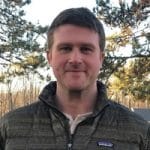 Nicholas Cuba will work with students in his Spatial Database Design course to index a set of 1,000 archival aerial photos showing areas within Montgomery County at irregular intervals between the years 1938 and 2006. By working with these photos, students will have opportunities to discuss social dimensions of the built environment, reflect on transitions including those associated with forced desegregation, urban renewal and subsequent blight, as well as the destruction, extractivism, and evolution of racial segregation wrought by highway construction.
Nicholas Cuba will work with students in his Spatial Database Design course to index a set of 1,000 archival aerial photos showing areas within Montgomery County at irregular intervals between the years 1938 and 2006. By working with these photos, students will have opportunities to discuss social dimensions of the built environment, reflect on transitions including those associated with forced desegregation, urban renewal and subsequent blight, as well as the destruction, extractivism, and evolution of racial segregation wrought by highway construction.
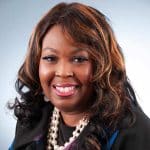 Djuana Duncombe-Paden will develop an interdisciplinary curricular framework focused on civil rights and civic virtues for use in her section of the university first-year seminar (UNIV 1000). This project will provide students with a comprehensive understanding of the historical struggles for civil rights, their relevance in contemporary society, and the cultivation of civic virtues necessary for active participation in a democratic society.
Djuana Duncombe-Paden will develop an interdisciplinary curricular framework focused on civil rights and civic virtues for use in her section of the university first-year seminar (UNIV 1000). This project will provide students with a comprehensive understanding of the historical struggles for civil rights, their relevance in contemporary society, and the cultivation of civic virtues necessary for active participation in a democratic society.
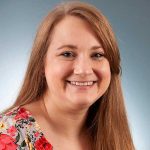 Hilary Gamble has received a grant from the Alabama Press Association Journalism Foundation to establish a community news service program at Auburn University Montgomery (AUM). Her participation as a faculty fellow will support the work she will do to pilot this program, engaging students in the Communication and Theatre department’s journalism and media practicum courses as they produce local news stories for community newspapers.
Hilary Gamble has received a grant from the Alabama Press Association Journalism Foundation to establish a community news service program at Auburn University Montgomery (AUM). Her participation as a faculty fellow will support the work she will do to pilot this program, engaging students in the Communication and Theatre department’s journalism and media practicum courses as they produce local news stories for community newspapers.
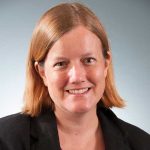 Shannon Howard will be working to reimagine a final oral presentation assignment for her English Composition II course, a project that draws inspiration from the reaction videos of YouTube celebrities Tim and Fred Williams, nicknamed “Twins the New Trend.” As she engages in this work, she will reflect critically on pedagogical uses of multimodal projects in light of the birth of American popular culture and the exploitation of Black stereotypes like Jim Crow. In particular, she will focus on the use in a video presentation. She hopes that this project will enable her and other educators to make strides to improve Black representation in college classrooms.
Shannon Howard will be working to reimagine a final oral presentation assignment for her English Composition II course, a project that draws inspiration from the reaction videos of YouTube celebrities Tim and Fred Williams, nicknamed “Twins the New Trend.” As she engages in this work, she will reflect critically on pedagogical uses of multimodal projects in light of the birth of American popular culture and the exploitation of Black stereotypes like Jim Crow. In particular, she will focus on the use in a video presentation. She hopes that this project will enable her and other educators to make strides to improve Black representation in college classrooms.
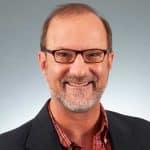 Keith Krawczynski has developed an oral history program designed to get students in the community interviewing a variety of people with the purpose of preserving their memories and learning from their personal experiences. In Spring 2024, his students will have the opportunity to interview people involved in the march from Selma to Montgomery, the 60th anniversary of which will occur in March 2025.
Keith Krawczynski has developed an oral history program designed to get students in the community interviewing a variety of people with the purpose of preserving their memories and learning from their personal experiences. In Spring 2024, his students will have the opportunity to interview people involved in the march from Selma to Montgomery, the 60th anniversary of which will occur in March 2025.
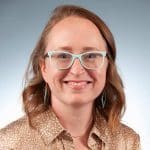 Amber Sutton will employ an arts-based research project in her Human Behavior and Social Environment course, using student-generated photography to increase students’ civil rights literacy and deepen their commitment to social justice. Students will select a local site of historic relevance to the Civil Rights Movement, conduct secondary research on the history of the site, visit and take photographs of the public site, and provide a narration (audio-recording or text) of their findings. These projects will provide opportunities for students to create exhibits/performances or to submit work in support of local initiatives.
Amber Sutton will employ an arts-based research project in her Human Behavior and Social Environment course, using student-generated photography to increase students’ civil rights literacy and deepen their commitment to social justice. Students will select a local site of historic relevance to the Civil Rights Movement, conduct secondary research on the history of the site, visit and take photographs of the public site, and provide a narration (audio-recording or text) of their findings. These projects will provide opportunities for students to create exhibits/performances or to submit work in support of local initiatives.
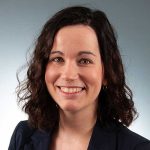 Heather Witcher will be the first to teach the Department of English & Philosophy’s new capstone course. Her goal is to build assignments that will help English majors articulate transferable skills aligned with career pathways that are open to them based upon their program of study. One of her main objectives will be to center English as a public good—as a program that is vitally public-facing, and that will allow students to engage more deeply within the community, seeing how English as a field of study allows them to empathize with causes within our community, advocate for change, and, ultimately, become individuals who craft arguments for those changes.
Heather Witcher will be the first to teach the Department of English & Philosophy’s new capstone course. Her goal is to build assignments that will help English majors articulate transferable skills aligned with career pathways that are open to them based upon their program of study. One of her main objectives will be to center English as a public good—as a program that is vitally public-facing, and that will allow students to engage more deeply within the community, seeing how English as a field of study allows them to empathize with causes within our community, advocate for change, and, ultimately, become individuals who craft arguments for those changes.
